11 Questions & A Cup of Coffee: U.S. House Representative Dan Crenshaw
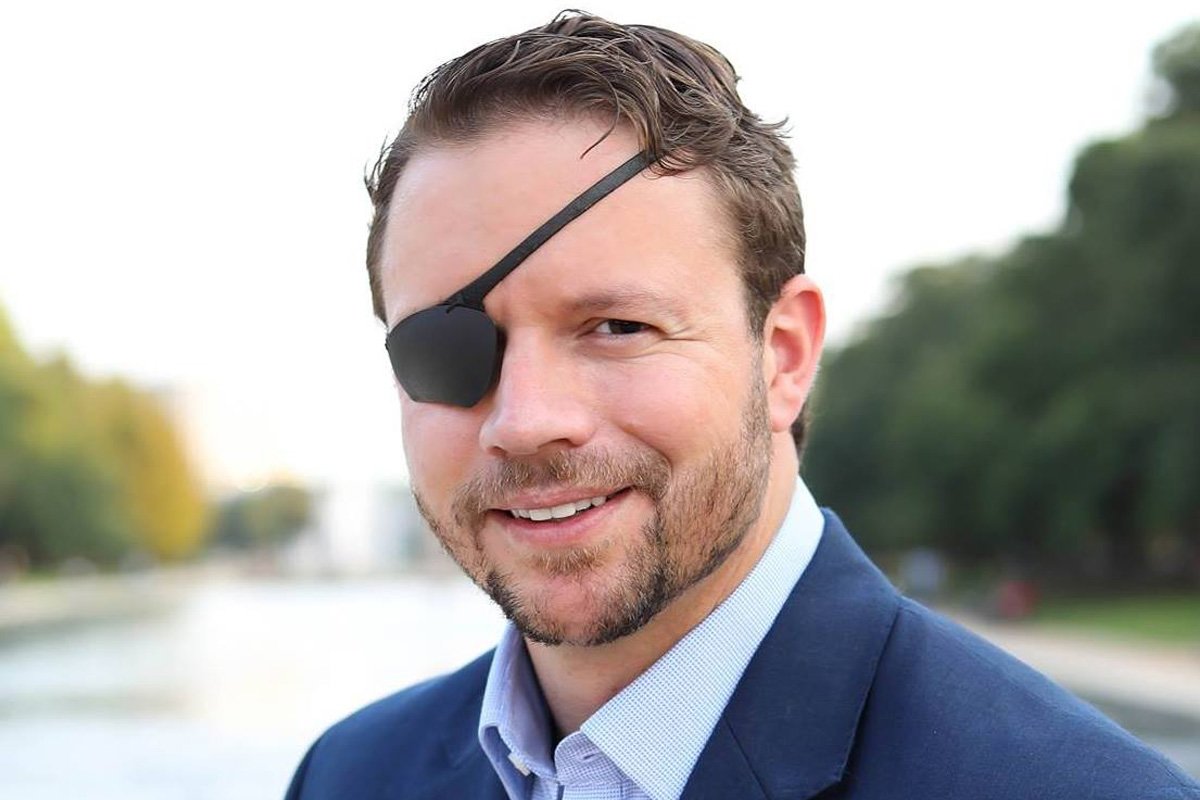
A spokesman for Rep. Dan Crenshaw told the Washington Post that allegations that he participated in a smear campaign against the staffer accusing VA Secretary Robert Wilkie of sexual assault are unfounded. Photo courtesy of Dan Crenshaw.
U.S. Representative Dan Crenshaw has become something of a rock star in the Republican party. He represents some of the more traditional conservative values of the party, and he’s not afraid to speak up about policies that don’t align with his principles — regardless of where that lands him in relation to President Donald Trump’s ideals.
The former U.S. Navy SEAL served for 10 years before he was medically retired due to injuries sustained from an improvised explosive device in Afghanistan in 2012. As a decorated member of SEAL Team Three, Crenshaw saw five deployments to Iraq, Afghanistan, and South Korea and reached the rank of lieutenant commander.
After military retirement, he earned his Masters in Public Administration from Harvard, then ran for — and won — a seat in the U.S. House of Representatives for Texas’ 2nd Congressional district. Crenshaw currently serves on the Homeland Security Committee and the Budget Committee, and as the ranking member of the Oversight, Management, and Accountability Subcommittee of the Homeland Security Committee.
Because he lost one of his eyes in combat, Crenshaw wears an eyepatch, something that was famously mocked on “Saturday Night Live” prior to his election to Congress. It also led to a guest appearance on the show the following week.
We recently caught up with Crenshaw for the latest installment of 11 Questions & A Cup of Coffee — which actually turned out to be a few more than 11 questions. Check it out!
COD: How do you make your coffee?
DC: I don’t know what the little machine is called — it looks like a pitcher, and you put the water in the base of it, and you put the coffee grounds kind of in the middle of the little container, and then you just put the whole contraption on the stove and it boils the water through the coffee and then percolates up into the top. What is that thing called?
The brand is Bialetti — I’ve made this much harder to answer than it should be. (Editor’s note: It appears to be a stovetop Moka Express.)
COD: How do you take your coffee?
DC: That changes, too. These are hard questions. So today, I put almond milk in it, and I’ll put these extra additives like MCT oil, maybe some mushroom powder for cognitive function because I’ve noticed that stuff actually helps me stay out of a fog for the rest of the day. I might add some chocolate protein in there or just some hot chocolate mix, too. So we call it a “smart mocha.”
I’m not opposed to strong black coffee, and sometimes I like a black cold brew. I’m not against that either.
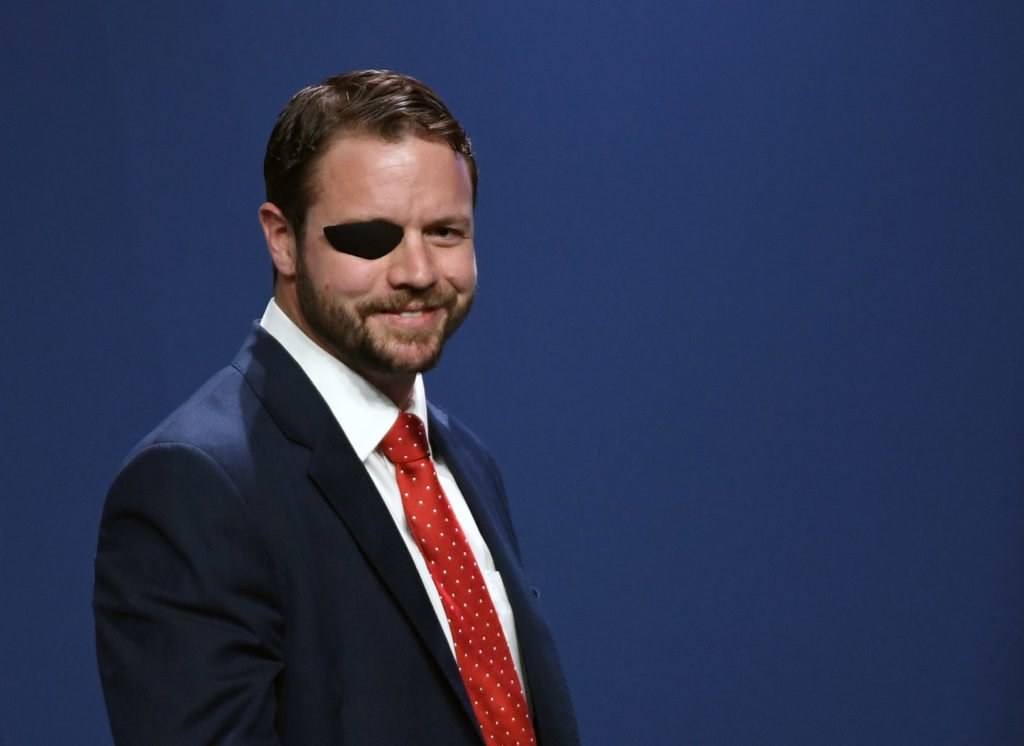
COD: What’s the most bizarre/extreme place you’ve ever gotten (or made) a cup of coffee?
DC: We’d get these little Starbucks instant packets and bring those on operations in Afghanistan, and you save them for just the right moment. I’d also take those Shock coffees, might stash one of those away in a bag and, you know, you’d be looking forward to that for days. Because you’d have to save it for when you want to pop that thing open — those things were so damn good.
Other than that, the weirdest place I’ve ever had coffee — growing up, I was in South America and we’d go on jungle trips, so maybe literally like the middle of the Amazon. That’s a little bit more exciting because I was a kid as opposed to a SEAL.
COD: Because that is a region — specifically Colombia — that coffee originates from, is the coffee better there than it is here?
DC: It’s quite good. We’re obviously importing their coffee, so it’s not all that different. I like the way it’s prepared. Some of the best straight drip coffee that I’ve had has been in Brazil. It was me and my wife’s honeymoon — it might have been the setting, just where we were at, it was on the coast in Bahia, but I’ll just never forget how good that tasted. I bought a bunch of Brazilian coffee after that — didn’t quite have the same flair to it. Maybe they made it a certain way that I’ll just never know.
I think they just make it stronger overseas — I need my coffee to be very strong.
COD: What’s the hardest thing you’ve ever done, physically or mentally or both?
DC: Well — I want to give you a more interesting answer that just BUD/S.
COD: I was going to say, if you said BUD/S, I’m just going to hang up the phone.
DC: Is that because Rangers are so jealous that they don’t have anything hard like BUD/S to go through?
COD: I don’t think it’s that we don’t have anything hard, it’s that nobody wants to admit that none of us can swim worth a shit.
DC: Fair enough, fair enough — which means not hard.
COD: I’m not going to argue with you on that front — the water definitely adds a dimension to things that you don’t get on land.
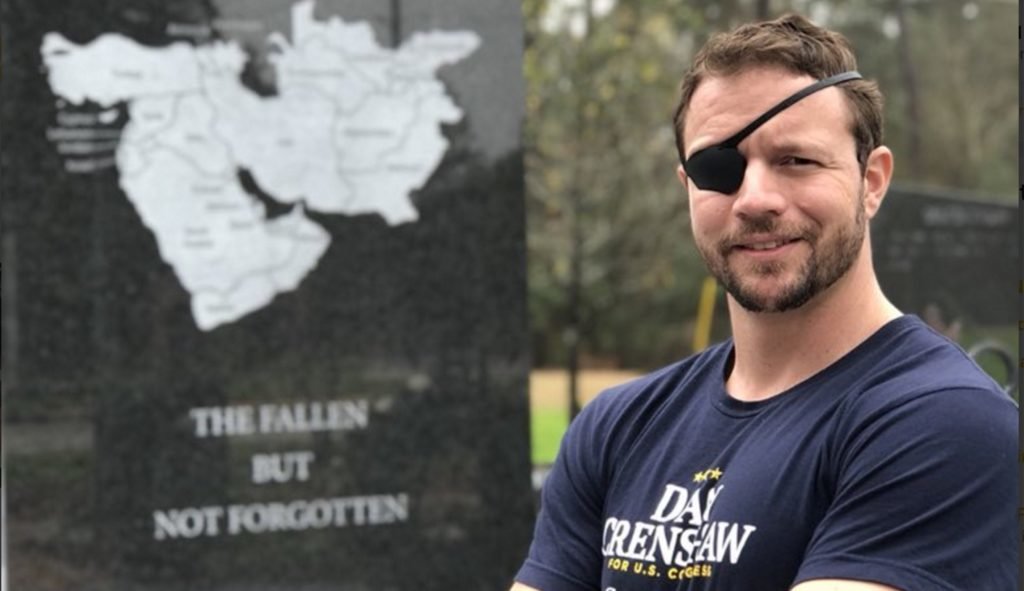
DC: Like the cold and the not breathing. I hate not breathing. Pool Comp is one of my least favorite things because it really is an exercise in controlled drowning. So, it’s not physically difficult, but it’s mentally difficult.
I mean, getting blown up is physically difficult to overcome, and mentally difficult. But honestly, the most difficult thing I’ve ever had to deal with is my mother dying — that’s affected me more than anything. It’s a little more of a somber note. She died when I was 10, so I grew up without her. And that’s difficult for a child.
On a physical note, the hardest thing for me to do right now is to catch things because I have one eye. I can catch large objects, like I can play volleyball, I’m okay at soccer still, but don’t throw a baseball at me. I won’t play baseball.
COD: I’d like to think that in casual conversation when somebody says something surprising, you reply with “I did not see that coming.” Is that something that you ever do? I really want you to say yes.
DC: No, I haven’t used that one (laughs). I’ll throw out a lot of “eye” comments — sort of like a no-pun-intended kind of comment, but I haven’t used that one. Maybe I will.
COD: Yeah, work it into the lineup.
DC: In natural conversation, you’ll often say, “I’ll keep an eye on that” — so I’ll just add, “so to speak.” I’ll often pretend to be offended when someone makes a binocular comment — you know, I think monocular people are basically oppressed by binocular people. And the world is made for a binocular population, and the monocular folks out there are forgotten. And then they like to tell me about their eye problems — you’d be amazed how many people like to tell me about their eye problems. And I’m like, aww aww.
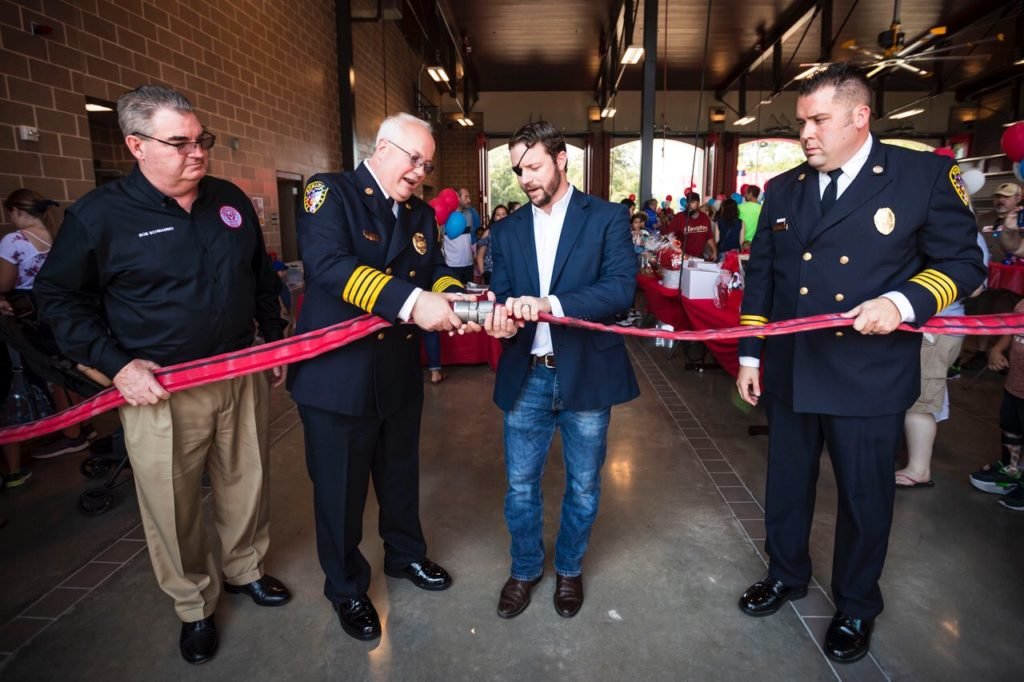
COD: On the note of getting blown up, rehabbing and getting back to a good physical place, that must have been a really difficult thing to do, too. We both know plenty of guys who have gone through that — I’ve never heard anybody say that was an easy thing to do.
DC: No, it’s not. There’s a couple aspects to it, just getting your body back in shape — I didn’t really have any big wounds outside of my eyes. I mean, there were, but it’s not like I lost limbs or anything there, so I can’t really complain too much. You eventually get your strength back and it’s just a slow roll. But the adaptation with vision was difficult because I was trying to adapt back to a fully functioning SEAL. And I think I accomplished that to an extent. They still wouldn’t let me deploy in a combat role ever again, but I did deploy. I still did all the training that was ever required of me because I wanted to prove that I could do it. I still jumped, not through the military actually, I still jumped recreationally. They wouldn’t let me jump through the military because you can’t pass the dive physical, and if you can’t pass the dive physical, you’re just not allowed to do certain things. Which is why I eventually retired, I was never able to overcome that bureaucratic obstacle — even though I could go do live-fire, night vision CQC runs.
COD: Again, I hate to default to this, but I imagine you’re one of those guys that’s like, “Yeah, I’ll take the PVS14s, I don’t need the dual NODs.”
DC: No, no, I demanded the duals, just so somebody else couldn’t have them (laughs). Being on NODs is actually an equalizer because with normal people — again, these oppressive binocular people — they have peripheral vision, and I don’t. But with NODs, everybody has no peripheral vision.
Now, the only thing that was a great disadvantage with that was, frankly, I didn’t have great contacts back then, so it was amazing that I was doing those things. The way that I can see now far, far exceeds how I was able to see back then. It just took a lot of time to adapt with different contacts — it took years, actually, to get the right contacts that don’t really affect my eye. And even the best ones affect my eye — I just had to take it out just now, it bothers me throughout the day. But having these glasses on, you’d have to see them to understand. They’re about a quarter-inch thick. I mean, I’m a +11 prescription — it’s an insane thing. It’s like I’m wearing night vision goggles because that’s about the field of vision I have just wearing glasses.
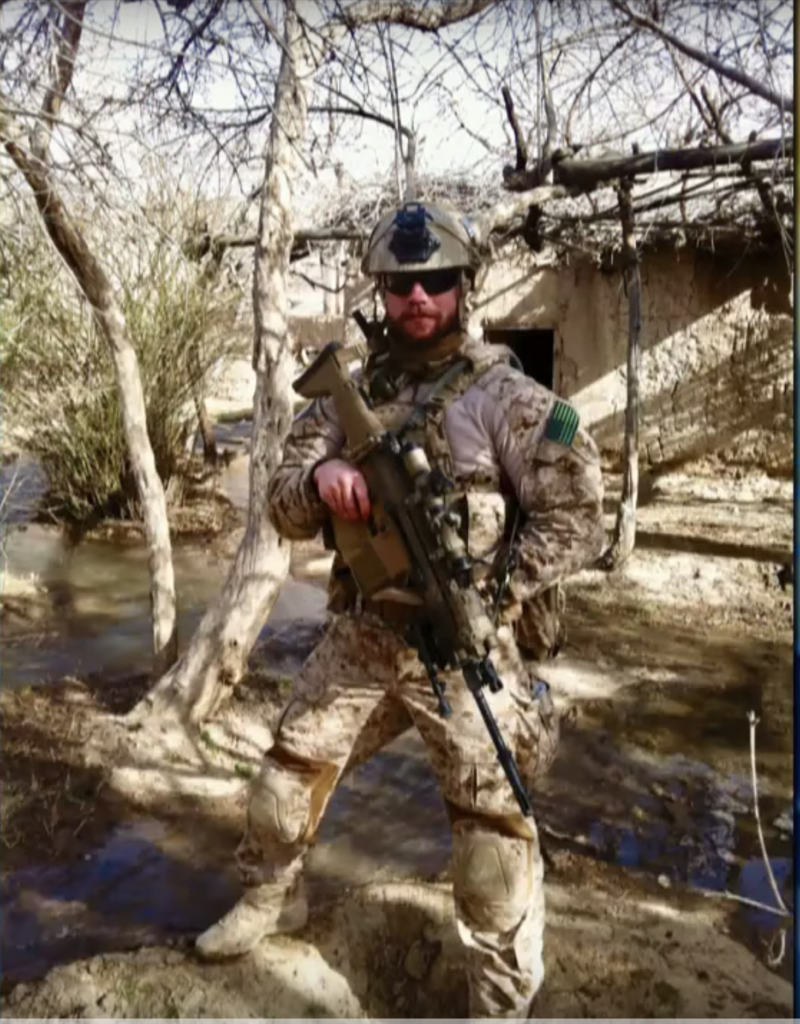
COD: I imagine that there may be some advantage to being a SEAL and transitioning to partial eyesight — you’re already used to working with limited vision, working at night, being underwater, things where you’re dealing with vision that’s not always crystal clear.
DC: I think the advantage is the “adapt and overcome” mentality. I think that’s more it. You see a lot of people who are very accepting of a disability, and I find that mentality to be destructive.
COD: What motivates you to do what you do?
DC: What motivates me to do this is impact. The reason I went back into public service instead of private sector is because I can make an impact on the way our country is governed and a whole variety of issues that I think matter to a lot of people. So what I’m looking for in life is purpose and fulfillment, not necessarily just a paycheck — although paychecks are really nice, and maybe one day I’ll look for that. But for right now, it’s really about a higher cause. That’s why you join the SEAL Teams — it’s maybe why you become a Ranger, you know, because you couldn’t join the SEAL Teams (laughs) — but, yeah, it’s really about a higher cause.
COD: What do you think is the most misunderstood thing about you or the work you do?
DC: So many things. You hear a lot in random conversation and quips and talking points thrown out there by average Americans who just throw out as a truth that politicians have betrayed them, they don’t care what people think, they don’t really do any work, they lied during their campaign, they’re corrupt in some way.
And I’m always like, well, like what? What do you mean? What do you mean by “the establishment”? These RINOs in the establishment — what do you mean by that? What are you talking about? And nobody has an answer to that — they don’t know. It usually means, “Well, they didn’t say exactly what I think and that makes me not trust them.”
And, you know, I think that’s problematic in our discourse. It’s not what I see in Washington. I mean, I definitely see a lot of members who are just unimpressive, but are they corrupt? Do they just laugh at the idea that they’re not doing what their constituents think they should be doing? Of course not. They’re trying very hard to do what their constituents want them to do and what they were elected to do.
It seems like it’s just a popular thing to say [that Congress isn’t doing its job], and I wish people would stop doing it unless they have a real grievance. I wish they would stop doing it because it just creates a circular firing squad within the party and really toxic talking points that just make people upset. And they don’t know why they’re upset, but they’re upset. And it’s not clear to me that that’s true. I look around at the other members, and sure you might find some who are just unable to fight the fight that you want them to fight, but that doesn’t mean they’re corrupt or lazy or anything else. They have a variety of constituents sometimes, and a lot of people get really mad because they think their opinion is the only one their member should be listening to. And it turns out there’s a lot of constituents the member listens to.
There’s a lot of dysfunction in Washington — and people don’t want to hear this, but the truth is the House of Representatives represents the people quite well, as a matter of fact. So it shouldn’t surprise us, but it looks that way. These members are all truly responding to their constituents, and I feel the same way. I have a district where I feel that I can fight for my own beliefs, that I don’t have to really compromise them. I understand that not all members have that, some might be more conservative than their district will allow, and then they get accused of being a RINO, whatever that means. I think that’s a foolish way for us to look at things.
I would also say the other thing that people just kind of throw out there as a truth when in fact it is not is that corporations have all this power over politicians. It just doesn’t appear to be the case to me. At all. First of all, a corporate PAC can only give a maximum of $5,000, and you’re almost never going to get $5,000 anyway. So, this idea that any corporation can buy somebody off is completely absurd and ridiculous. The only PACs you really end up meeting with are ones that already agree with you. Nobody’s coming in and saying, “Hey, we’ll support you, but you gotta do this.” I’ve never heard that. I’m not saying it hasn’t happened, but the reality is, if they’re asking for something, they want you to support something, I simply ask why, and if they make a good argument, okay, then let’s support it. Let’s understand this policy. I make them answer for it.
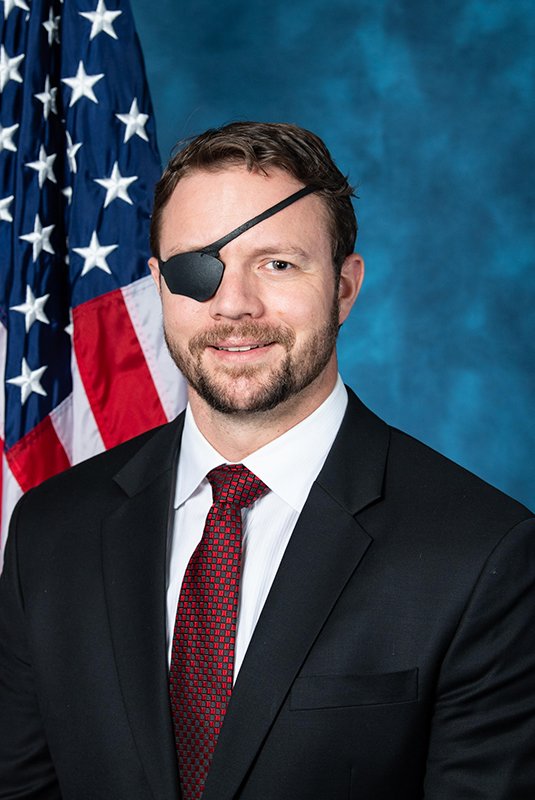
The truth is, you would never hear about a lot of these issues if a group didn’t pull their resources together and hire people to come tell you. You would never know, right? And that’s the whole point of a democracy is that different groups can get together, pool their resources together, and advocate. That’s a key function of democracy. Just because they all happen to work for the same place doesn’t make their voice any less relevant.
COD: Just looking at something like, I work for Black Rifle Coffee Company. I, in part, work for them because they align with my personal views. And I think for a lot of people, if you work for certain companies or certain groups, especially in this day and age, it’s not just a job — it also needs to be something that they feel they can connect with. So if that company is lobbying, they’re probably lobbying on behalf of a lot of other constituents as well.
DC: A lot of families, a lot of workers. No matter what you do for a living, I promise you are represented by a lobbyist in Washington. For the most part, there is some kind of association, there is some kind of PAC, that advocates for your industry. Doesn’t matter if you’re the CEO or the worker because the CEOs don’t want — and again this is a false talking point — but CEOs actually don’t want people to be fired, okay. They want their businesses to grow, they want the best for people. The incentives are aligned, and it amazes me daily how often people think these things that are just not true.

COD: How do you define success?
DC: Fulfillment. That actually goes back to the same answer as why I do what I do, which is seeking fulfillment and purpose and impact. But you define your impact, and your impact is defined by whatever gives you fulfillment. Maybe for some people, making a certain amount of money is their success. That’s totally fine as long as that gives you the fulfillment that you’re seeking. I’m not so sure it will. But feeling like you’re having an impact on this world I think is the most important thing anybody can do.
COD: Mountain view or ocean view?
DC: That’s too hard to answer. Probably ocean. I like how vast the ocean is, I like going into the ocean. But I also really like mountain views, so that’s a tough one. The mountains are very rejuvenating to me — we try to take mountain trips as often as we can — but the ocean is a peaceful place to exist.
COD: If you could have any superpower, what would it be?
DC: Telekinesis. Obviously. It gives you the ability to do so much more — you can move anything with your mind, including yourself, so you can fly. You can move things around with your mind which means you can throw things at people, in theory you could lob lightning bolts at things, stop things coming at you — you can effectively make yourself invincible because you, with your mind, can prevent anything from touching you. So, there’s a lot of obvious reasons why telekinesis should be your first choice.
COD: What are your hobbies, outside of what you are known for?
DC: Skiing is the big sport that I like the best. I do like skydiving still, but I never get to go so it’s hard to call it a hobby. I do some writing, but that’s less of a hobby, more of a job. On the boring end, because we’re so busy, just spending time on the couch with the dogs is a hobby in and of itself.
COD: On a scale of 1-10, how confident are you in your ability to survive in a post-apocalyptic world? (1= I’m dead on day one, 10 = I’m pretty much going to be the ruler of the new world order)
DC: There’s a decent chance that I’m the ruler. I mean, look at “The Walking Dead” — who ruled that town? The guy with the eye patch. I think I have the skillset to lead a group of people and get them to follow me.
Obviously, my problem with a post-apocalyptic world comes into play when I run out of contact solution (laughs). That’s a devastating place for me to be in, where I eventually only have a couple of contacts. And I can’t find these at a 1-800-CONTACT LENS warehouse — these contacts are highly specialized, I can’t reproduce them. So, that’s a real problem for me in a post-apocalyptic world, just by nature of not being able to see. So I would eventually be relegated to a life of just wearing my glasses, which makes me much more vulnerable.
But hopefully the idea is that by that time — which is, say, months from now — by that time, I’ve already started to lead an organization, I’ve developed a small town, we’re well-armed, we’re well-versed in the right governing principles to make our society successful, we’ve developed a system for food and nourishment and water and defense, and we’re crushing it by that time. So I’m just laying back managing things and don’t need to be driving off zombies the entire time, so I think I’ll be okay.
I’d be looking for a quick ascent to power. I’d be recruiting very fast — we’ve got a group, this is what we’re doing, and the faster we do this, the better off we’ll be. Follow me.

Katie McCarthy is the managing editor for Coffee or Die Magazine. Her career in journalism began at the Columbus (Georgia) Ledger-Enquirer in 2008, where she learned to navigate the newsroom as a features reporter, copy editor, page designer, and online producer; prior to joining Coffee or Die, she worked for Outdoor Sportsman Group as an editor for Guns & Ammo magazine and their Special Interest Publications division. Katie currently lives in Indiana with her husband and two daughters.
BRCC and Bad Moon Print Press team up for an exclusive, limited-edition T-shirt design!
BRCC partners with Team Room Design for an exclusive T-shirt release!
Thirty Seconds Out has partnered with BRCC for an exclusive shirt design invoking the God of Winter.
Lucas O'Hara of Grizzly Forge has teamed up with BRCC for a badass, exclusive Shirt Club T-shirt design featuring his most popular knife and tiomahawk.
Coffee or Die sits down with one of the graphic designers behind Black Rifle Coffee's signature look and vibe.
Biden will award the Medal of Honor to a Vietnam War Army helicopter pilot who risked his life to save a reconnaissance team from almost certain death.
Ever wonder how much Jack Mandaville would f*ck sh*t up if he went back in time? The American Revolution didn't even see him coming.
A nearly 200-year-old West Point time capsule that at first appeared to yield little more than dust contains hidden treasure, the US Military Academy said.












